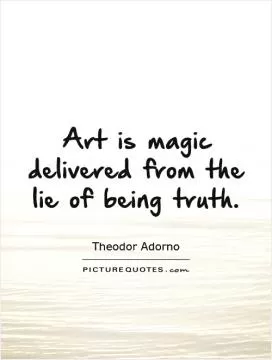History does not merely touch on language, but takes place in it

History does not merely touch on language, but takes place in it
The statement "History does not merely touch on language, but takes place in it" holds particular significance in the context of Theodor Adorno's work. Adorno, a prominent German philosopher and sociologist, was known for his critical theory and analysis of culture and society. His writings often delved into the complexities of language and its role in shaping historical events and societal structures.Adorno believed that language was not simply a tool for communication, but a powerful force that shaped our understanding of the world and influenced our perceptions of reality. In his view, language was not neutral or objective, but rather a product of historical and social forces that shaped its meaning and usage. This idea is reflected in his famous quote, "History does not merely touch on language, but takes place in it."
For Adorno, language was a key component in the construction of ideology and power dynamics within society. He argued that language was not only a means of expressing ideas, but also a tool for shaping and controlling thought. Through language, dominant social groups could impose their worldview on others, reinforcing existing power structures and perpetuating inequality.
Adorno's critique of language also extended to the realm of art and culture. He believed that the language of art and literature played a crucial role in shaping our understanding of society and influencing our perceptions of reality. Adorno was particularly critical of the ways in which language could be used to manipulate and deceive, leading to the creation of false consciousness and reinforcing oppressive social norms.












 Friendship Quotes
Friendship Quotes Love Quotes
Love Quotes Life Quotes
Life Quotes Funny Quotes
Funny Quotes Motivational Quotes
Motivational Quotes Inspirational Quotes
Inspirational Quotes